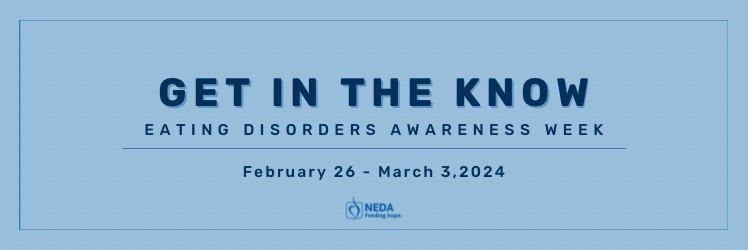This blog post represents the author’s views and should not be interpreted as professional/medical advice or endorsed by NEDA.
I developed bulimia at 15. I’d mindlessly binge on food, then feel immense anxiety over the fear of gaining weight accompanied by the physical discomfort of feeling overly full. This discomfort would overwhelm me and compel me to seek relief through purging.
While reading that, most people would envision a woman as the person being described. It’s what society has trained us to think when we imagine someone with an eating disorder. But I’m a man. And at 15 years old I had never heard of another man experiencing an eating disorder. Fast forward 20 years to today, not much has changed, and the stigma and silence are costing lives.
Growing up in the 90s and early 2000s, it was hard not to subscribe to society’s definition of “what a man should be.” I grew up with the understanding that, as a man, I was expected to play a certain role. So as a teenager, with the desire to be socially accepted by other high schoolers, I was reluctant to admit to myself or anyone else that I was suffering from an eating disorder. Something I had come to believe was a woman’s issue.
After only one year of being bulimic, I was already experiencing digestive health problems. From age 15 to 25, I ended up in doctor’s offices and ERs, experiencing crippling chest pains, and concerning gastric symptoms.. Yet still, no one suspected anything. In fact, hiding my bulimia wasn’t difficult since I didn’t match the stereotypical image most people have of someone with an eating disorder. Even doctors overlooked somewhat obvious signs of my bulimia. I’m extremely fortunate to say that after a decade of struggling, I was able to find recovery. However, even though I’ve recovered from bulimia, I’ve been left with lifelong digestive conditions that I still have to manage on a daily basis.
In my brief time openly talking about my experience with bulimia, I’ve spoken to and received emails from a number of men confiding in me about their struggle with the disorder, and almost every time, they tell me that I’m the first person they’ve ever told. Most have never heard of another man who experienced bulimia or one who was willing to talk about it and share their experience.
There is a culture of toxic masculinity that indirectly encourages silence among men who might be struggling and fear being emasculated. This silence isn’t only coming from those suffering, it’s also coming from society as a whole. Besides much of my struggle being exacerbated by stigma, it was also amplified by a general lack of awareness and exposure to the issue. Initially, I didn’t know that I was suffering from an eating disorder because I didn’t even know what bulimia was. Like many schools, my high school brought in a “scared straight”-type speaker to talk to us about the dangers of drug use and drunk driving, but never anyone to talk about what to do if faced with an eating disorder. TV shows and movies abundantly depict addiction and alcoholism, many times even glamorizing them, but rarely do we see anorexia, binge eating, or bulimia commonly featured or even accurately portrayed. And when it is portrayed, we’re typically only shown a young, affluent, caucasian woman.
But positive change is happening, even if slowly. Genderism is being challenged now more than ever, giving way to the understanding that assumptions based on gender aren’t just ignorant, but actually harmful. Additionally, mental health is now a focal point in the dialogue, but we still have a long way to go for people to be truly aware and sufficiently educated about eating disorders.
We need to make sure we recognize that eating disorders aren’t discriminatory so that the 15-year-old version of me, today, can seek the help they need before it leads them to the ER. Eating disorders can affect anyone and the more we can bring these topics to the forefront, the harder it will be for people suffering to go unnoticed and untreated. Destigmatizing conversations around eating disorders is the first step in helping people speak up and find recovery.
If you or someone you know might be suffering from an eating disorder, I encourage you to use NEDA’s resource center. You can also try NEDA’s eating disorder screening tool here.
Lucas was 15 years old when he developed bulimia, an eating disorder. Because of the stigmas that surround eating disorders, Lucas was afraid that if anyone found out, he’d be shamed and alienated. He had never heard of a man having an eating disorder. So he hid it. Lucas’ bulimia progressed into his mid-twenties and resulted in visits to the doctor’s office and even the ER. He was fortunate enough to fully recover from it but he was left with irreparable damage to his digestive system. Over the years that followed, in order to manage symptoms from his digestive issues, Lucas relied on typical over-the-counter medicine. As time went on, Lucas’ preferences in the products he used changed, but realized that his medicine stayed the same. This need for something different led Lucas to start Wonderbelly– a modern digestive medicine company. But that’s not all that came from that journey. Lucas’ recovery has also led him to do a lot of exploration into shame, and different ways people have been conditioned to feel negatively about themselves and their bodies. Lucas’ hope is that Wonderbelly can help those in need find some relief, whether it be from the pain of indigestion or the shame of self-judgment.






